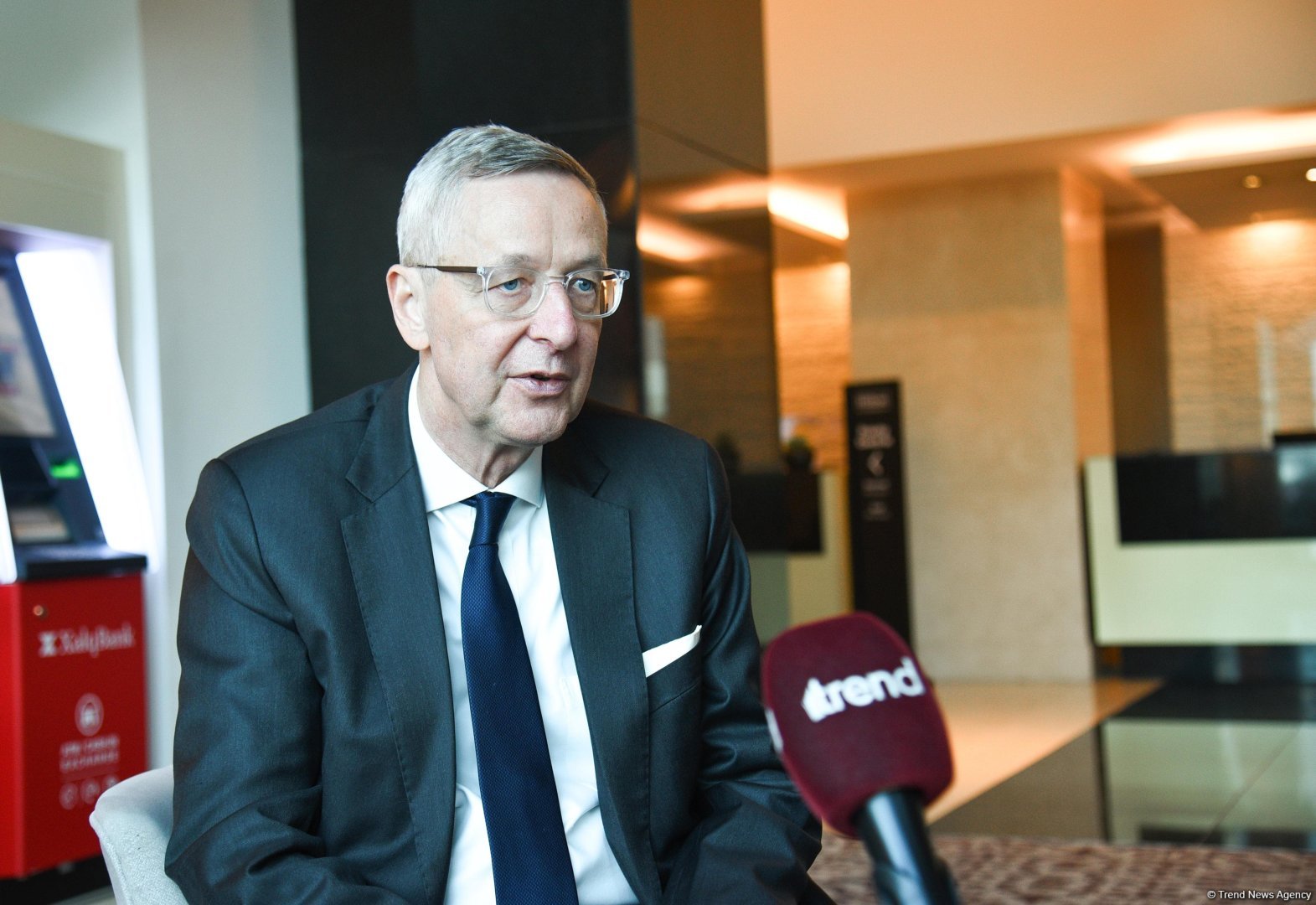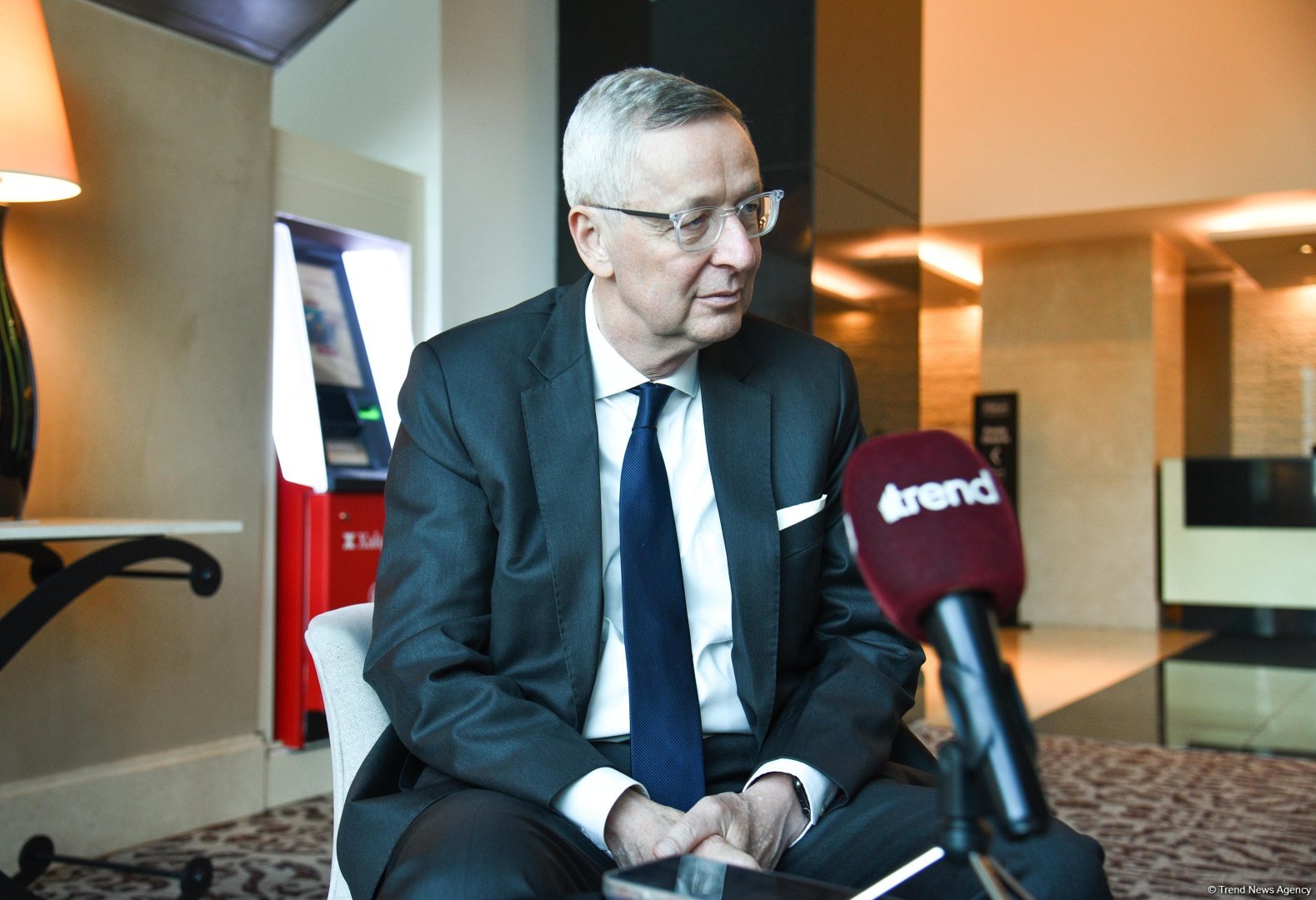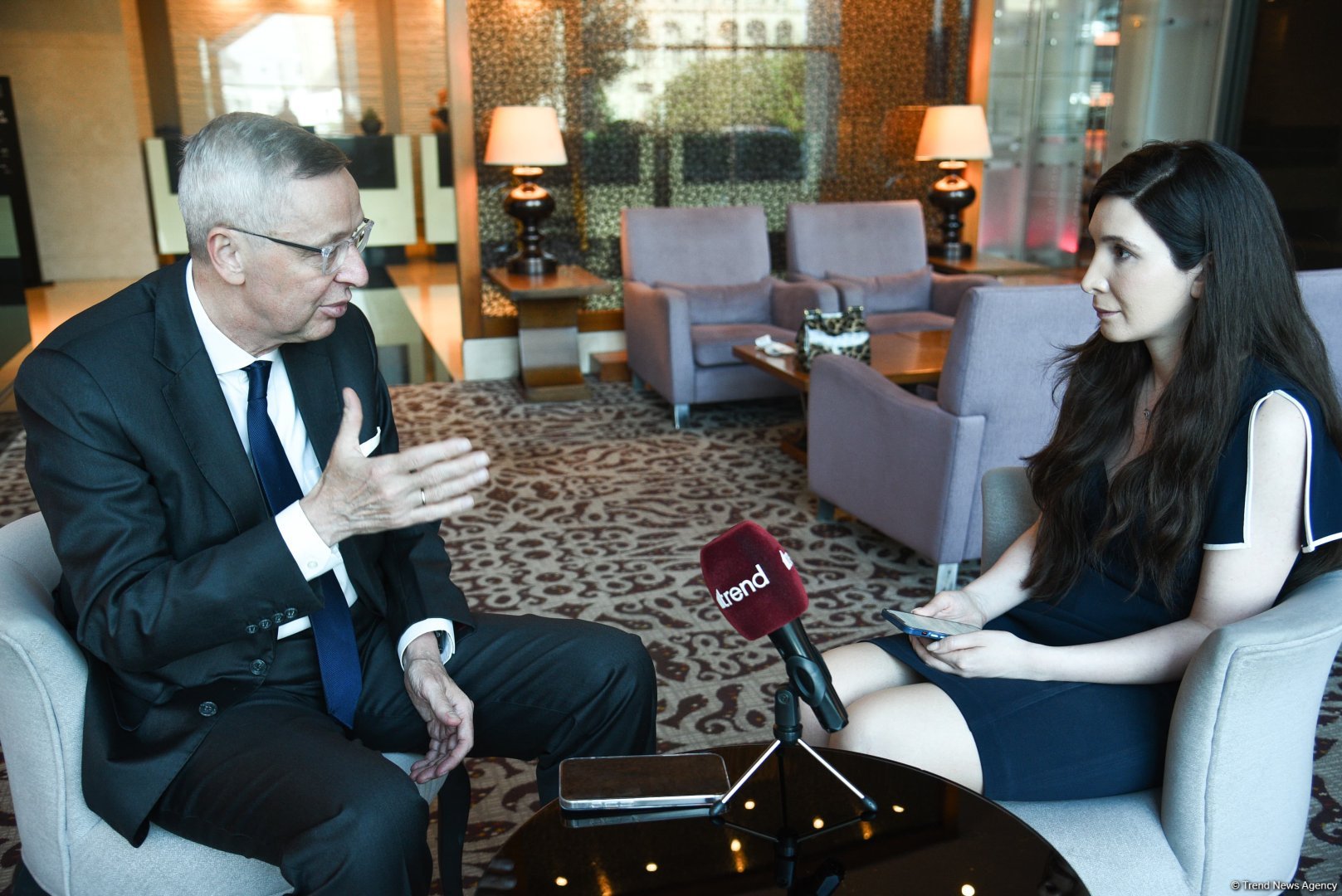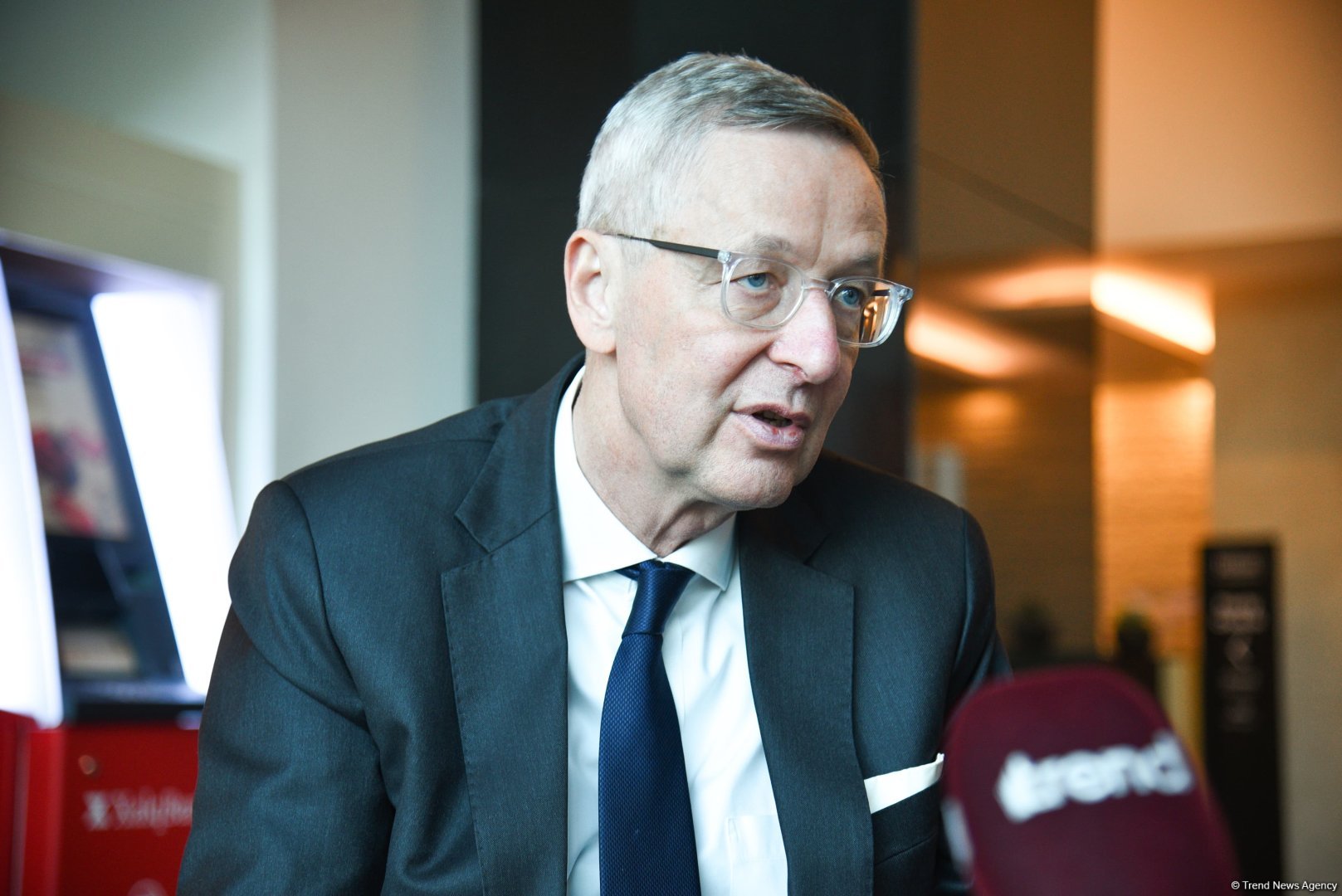BAKU, Azerbaijan, May 31. Azerbaijan and Germany have identified 20 specific projects across various sectors of economy, Michael Harms, Chairman of the Eastern Committee of the German Economy, said in an exclusive interview with Trend, as he visited Baku.
"We aim to strengthen and deepen German-Azerbaijani business relations as much as possible, focusing on concrete and practical outcomes. Our goal is to foster tangible projects, which is the core purpose of the roadmap we developed in cooperation with the Ministry of Economy and the Export and Investment Promotion Agency of the Republic of Azerbaijan (AZPROMO). We have identified 20 specific projects across various sectors of economic activity. Some of these projects are already underway, while others are planned for initiation. The primary objective is to secure strong political support, maintain continuous attention on these projects, and collaborate closely to ensure their successful implementation," he said.
Energy cooperation
Harms noted that the two countries have close cooperation in the energy sector, represented by companies like Uniper, VNG, and others, but this is still not enough.
"I am very grateful to our Azerbaijani counterparts for their openness. There is definitely room for improvement, especially regarding large-scale renewable energy projects. We have both the technology and the potential. What we need now is to raise more financing and strengthen political support — and I am hopeful that we will achieve this.
Azerbaijan is one of the main energy suppliers to the European Union, supplying gas to 10 European countries, which is significant. As you know from the European Commission, we want to strengthen our energy partnership with Azerbaijan. However, frankly speaking, the European Union is sending mixed signals. On one hand, we want to reduce our dependency on fossil fuels, which is the right direction. But on the other hand, increasing partnership and supply from Azerbaijan requires predictability, as it involves substantial investments. These are important issues we need to discuss. Azerbaijan has a clear energy strategy. You are fortunate to have abundant fossil fuel resources, but you also have a well-defined plan for developing renewables. We need to find a balanced approach — one that allows us to uphold our climate goals while also making use of bridge technologies," he added.
Harms pointed out that the new government in Germany has a concrete plan to build 20-gigawatt gas-fired power plants, so the country will need more gas: "If that is the case, then as part of a bridge strategy, we must support the financing of these projects".
Development of the Middle Corridor
He noted that Azerbaijan holds a strong competitive advantage in logistics and infrastructure, as it is positioned at the focal point of the Middle Corridor.
"Azerbaijan plays a vital role in the transit of cargo to China, and we have concrete projects related to this outlined in our roadmap. Germany and Azerbaijan are engaged in very intense discussions on the development of the Middle Corridor. Germany places great importance on this initiative — it’s something we truly need. One of our key projects is already underway at the Port of Baku, making this one of the core areas of our bilateral cooperation," said Harms.
New spheres of economic cooperation
"Looking at the roadmap, there are several projects focused on industrial localization — because without a local component, you simply can’t sell. I fully support Azerbaijan’s strategy of industrialization. The second area, as we’ve discussed, is logistics and infrastructure. And third, I would highlight the importance of improving the operational excellence of industry. This is where Germany can make a real contribution, given our extensive experience in this field. President Ilham Aliyev also paid attention to healthcare, as well as water treatment, sewage treatment, infrastructure development," he said.
Harms also highlighted the strong presence and active work of the German Chamber here in Baku.
"They are involved in a wide range of initiatives and are our strategic partners. I’m also aware that they are planning numerous smaller business activities across various sectors. I believe that, when it comes to public administration, Azerbaijan is, frankly speaking, much more digitalized than Germany. This is an area where we can certainly learn from you — one of the potentials we have not yet fully tapped into," he concluded.













